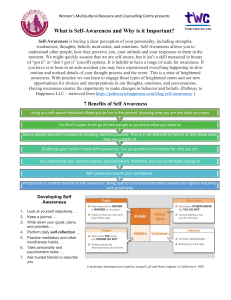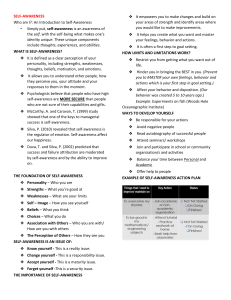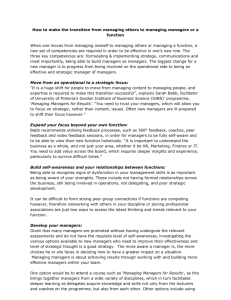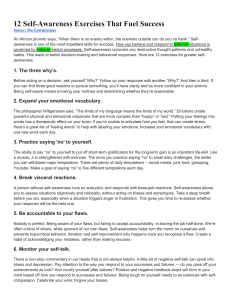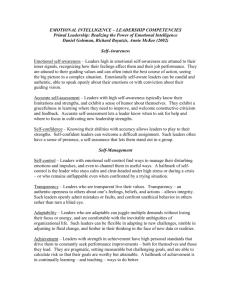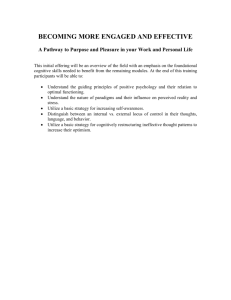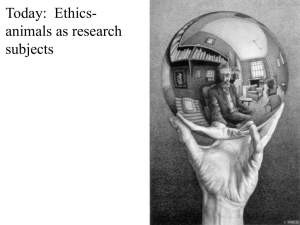Goal setting - WordPress.com
advertisement
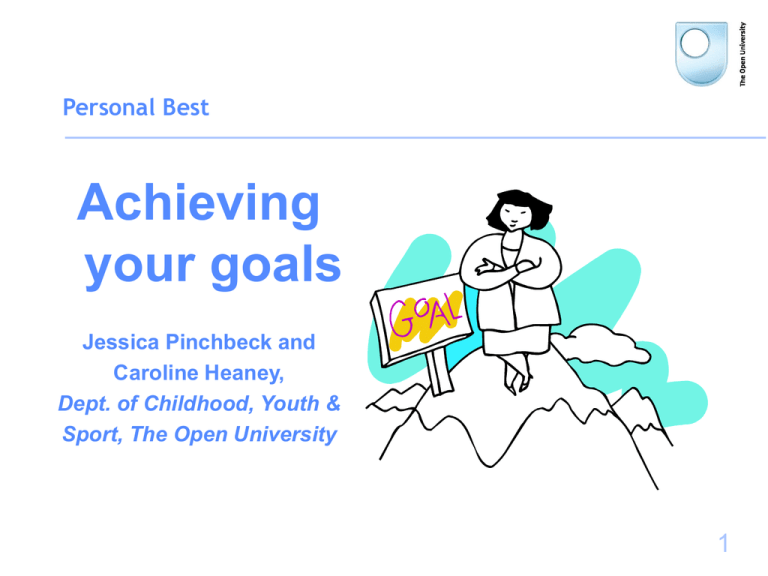
Personal Best Achieving your goals Jessica Pinchbeck and Caroline Heaney, Dept. of Childhood, Youth & Sport, The Open University 1 What is goal setting? • Most people naturally set themselves goals or targets to achieve - I want to pass my course - I want to lose weight - New Years resolutions! • Do these provide direction and motivation? • Effective goal setting involves setting the right goals at the right time 2 Types of Goals Outcome Goals Performance Goals • Focus on the end product • Focus on end product • Externally referenced • Self referenced • Example: To win a medal at the Olympic Games • Example: passing driving test Process Goals • Focus on the actions required to achieve end product • Example: to use a stress reduction technique before an exam 3 Short and Long term Goals • Both long and short term goals should be set • Research demonstrates both are important • Focusing only on long term goals does not improve performance • Typically a progression of short term goals lead to the long term goal Long term goal 4 Does goal setting work? • Yes! • Researchers found the following factors most consistently enhance the effectiveness of goal setting in sport and exercise environments - Goals of moderate difficulty Both short and long term goals Presence of feedback on progress towards goal Specificity of goals Public acknowledgement of goals Commitment to goal attainment Participant's input in the goal setting process Using combination of different goals 5 Why does goal setting work? • Indirect thought process view - Goals influence behaviour indirectly by affecting important psychological factors such as anxiety and confidence • Direct mechanistic view - Goals direct attention Mobilise effort Increase persistence Encourage strategy development (Locke and Latham, 1985) 6 How to set effective goals • • • • • • Specific Measurable Action orientated Realistic Timely Self determined (Smith, 1994) 7 Common problems in goal setting • • • • • Failing to set specific goals Setting too many goals Failing to adjust goals Not considering individual differences Not evaluating goals • These can all be prevented or minimised by following the SMARTS technique. 8 Dealing with setbacks • Life can often be like a game of snakes and ladders! 9 Now it’s your turn to set some goals! 10 Stage 1 of goal setting: Self-awareness Before you can set yourself goals you need to develop your self-awareness. QUESTIONS TO ASK: • How can I become a better XXXXX? • Am I aware of my strengths & weaknesses? • Am I reminding myself of my strengths? • Am I doing anything to strengthen my weaknesses? Performance profiling can help 11 Goal Setting Task 1. Self-Awareness: Complete the performance profiling sheet – What do you need to improve? 2. Set yourself some appropriate goals – What are you going to achieve? How? When? 3. Potential barriers & strategies – What might obstruct you? How can you overcome potential barriers? 12 Any questions? 13

